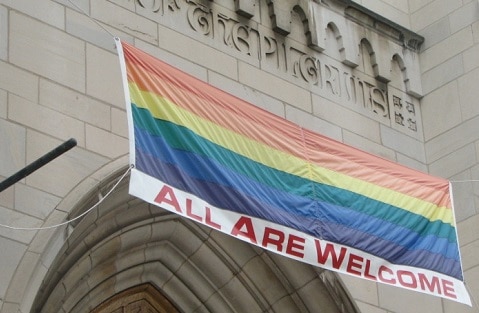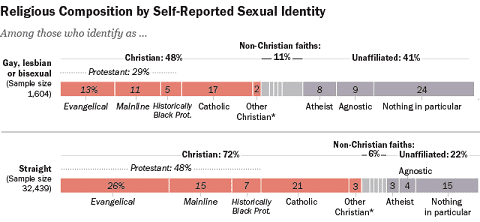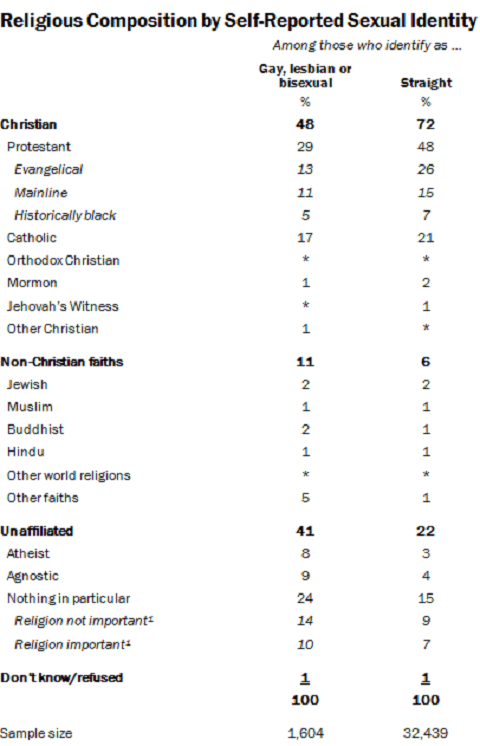Perhaps unsurprisingly, new data published by Pew Research Center shows that while a majority of LGB people are religiously affiliated, they are less likely to be Christian and are more drawn to smaller, non-Christian denominations.
Perhaps unsurprisingly, new data published by Pew Research Center shows that while a majority of LGB people are religiously affiliated, they are less likely to be Christian and are more drawn to smaller, non-Christian denominations.
Overall, the 2014 Religious Landscapes Study found that LGB adults differ from the general public in that they are much more likely to be unaffiliated (41%), almost twice the rate of Americans overall (22.8%).
While around five percent of respondents identified as LGB, 59% of that group reported that they are religiously affiliated while 48% belonged to a Christian faith. This compares with 71% of all respondents reporting affiliation with a Christian group.
The survey also found that 6% of the general public affiliates with a non-Christian denomination compared with 11% of LGB respondents and that almost half of LGB respondents said they belong to smaller faith groups, including Unitarian Universalist and other liberal faith traditions such as Wiccans and pagans.
A 2013 Pew Research Center survey found that many large majorities of LGBT people perceive Islam (84%), the Mormon Church (83%), the Catholic Church (79%) and evangelical churches (73%) as unfriendly to LGBT people.
The 2013 survey also found that 29% of LGBT adults said they personally were made to feel unwelcome in a religious organization.
Additionally, the 2014 research found that there is a growing unaffiliated rate among graduates and those with less education and across all income categories.






